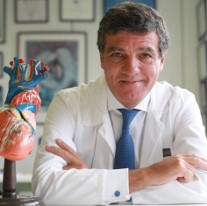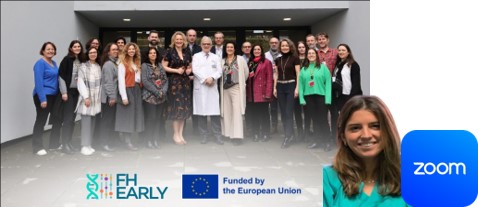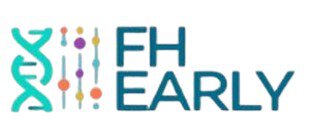FH-EARLY project on Familial Hypercholesterolemia, a high cardiovascular risk condition, funding by Horizon Europe programme

The FH-EARLY project - "New strategies for the Early Diagnosis, Risk Stratification and Co-management of Familial Hypercholesterolemia" led by the Association for Research and Development of the Lisbon School of Medicine (AIDFM), of the University of Lisbon, with Coordination of Professor Fausto Pinto, President of the Cardiovascular Centre of the University of Lisbon (CCUL) was selected for funding for approximately 7.25M€.

The FH-EARLY project is funded within the scope of the Horizon Europe funding instrument HORIZON Research and Innovation Actions (HORIZON-RIA) under the call: "Comparative effectiveness research for healthcare interventions in areas of high public health need - Tackling diseases and reducing disease burden" (HORIZON-HLTH-2024-DISEASE-03-08-two-stage).
With a consortium of 15 internationally leading institutions, this Horizon Europe project of 48 months will start in January 2025 aiming to enable new strategies for earlier diagnosis and co-management of familial hypercholesterolemia (FH).
FH is the most common inherited metabolic disorder in the world with about 2.5 million Europeans affected. Individuals with FH present a high cardiovascular risk but there are different effective treatments to reduce this risk; however, these high-risk individuals are not being clinically identified. An accurate diagnosis through genetic testing confirms the disorder in only about 50% of the cases, in the other 50% the cause for the severe hypercholesterolemia remains unknown, preventing the best management of their disorder. FH-EARLY will enable new strategies for earlier diagnosis and co-management of FH facilitated by well-defined data flows, identifying new mechanisms through multiomics, explainable AI modelling and co-creation with families with FH and caregivers.
FH-EARLY will help prevent premature coronary heart disease, not only for FH patients, but also within the general population: with potential to generate considerable economic and social benefits. FH-EARLY will develop three interrelated solutions for FH: (1) an array for earlier diagnosis, (2) an assay for risk stratification and (3) co-management strategies. This will provide faster and more affordable diagnosis and treatment of FH delivering the right intervention/service to FH patients and families at the right time, starting much earlier in life. FH-EARLY will also open new avenues for the identification of novel pathways and mechanisms involved in severe hypercholesterolemia.

The Spanish participation in Madrid focuses on the hospital setting, providing clinical expertise and patients recruitment for interventional studies in FH and secondary Cardiovascular disease prevention, it will be conducted entirely in the Clinical Unit of the Cardiology Service and its research group CARDIOVASCULAR DISEASES (area 5 of IRYCIS), led by Professor JOSÉ LUIS ZAMORANO and comprising Doctors Clemencia de Rueda & Marta Jiménez-Blanco.
The First Plenary Meeting took place in Lisbon, Portugal, on January 23, 2025, where representatives from 15 leading institutions across Europe, Lebanon, and Turkey and our representative Dr de Rueda via Zoom. All of them united to align their vision of addressing the urgent needs of FH patients through groundbreaking innovation.

Acknowledgment and Funding:
FH-EARLY is funded by the European Union through the European Health and Digital Executive Agency (HaDEA) as part of the HORIZON-HLTH-2024-DISEASE-03-two-stage call. Views and opinions expressed are those of the author(s) only and do not necessarily reflect those of the European Union or HaDEA. Neither the European Union nor HaDEA can be held responsible for them.



